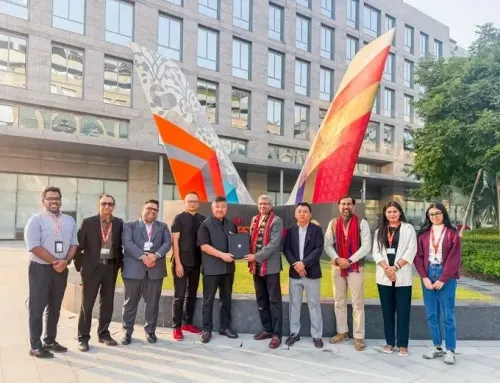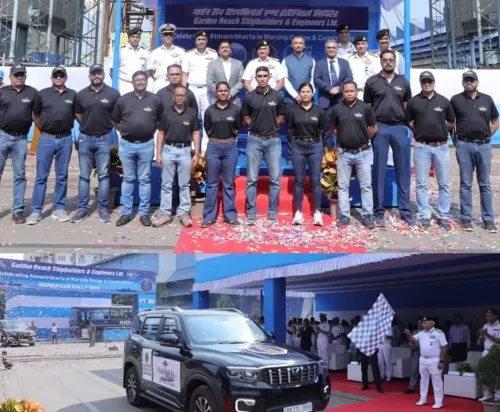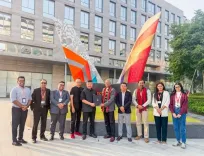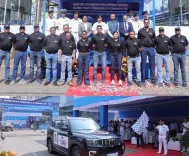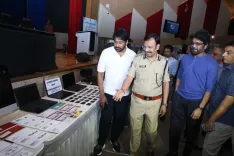What Did Defence Secretary Review in the Central Sector?
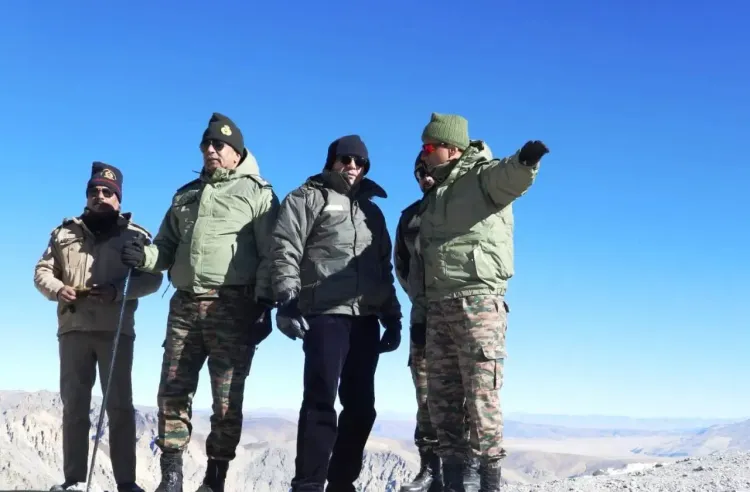
Synopsis
Key Takeaways
- Defence Secretary Rajesh Kumar Singh visited forward locations in the Central Sector.
- Focus on enhancing border infrastructure and strategic mobility.
- Contract signed for INVAR Anti-tank Missiles to strengthen military capabilities.
- Government emphasizes commitment to national security.
- Engagement with military officials for operational insights.
New Delhi, Nov 17 (NationPress) The Defence Secretary, Rajesh Kumar Singh, recently inspected forward positions in the Central Sector as part of an effort to ensure strong infrastructure development in strategically important border areas, as reported by an official on Monday.
During his visit from November 15 to 17, the Defence Secretary received updates in Pithoragarh regarding key operational issues from the General Officer Commanding, Uttar Bharat Area, and the Commander of the 119 (I) Infantry Brigade Group on various operational dimensions.
While at Navidang, he engaged with the relevant Battalion Commanders and the Chief Engineer Project Hirak from the Border Roads Organisation (BRO).
They provided insights on operational matters and the advancement of crucial border infrastructure initiatives designed to enhance strategic mobility and fortify national security.
Accompanying the Defence Secretary was the Director General of Border Roads (DGBR).
This visit highlighted the government's dedication to improving connectivity, enhancing readiness, and ensuring significant infrastructure development in key border areas.
Just last week, Defence Secretary Singh oversaw the signing of a contract with Bharat Dynamics Limited (BDL) for the acquisition of INVAR Anti-tank Missiles at a total cost of ₹2,095.70 crore, categorized under 'Buy (Indian)'.
The contract was formalized by senior members of the Ministry of Defence (MoD) alongside representatives from BDL, a state-owned defense public sector enterprise, in the presence of Defence Secretary Singh.
As stated by the MoD, "The purchase of the INVAR Anti-tank Missiles enhances the firepower and effectiveness of the T-90 tanks, which are crucial to the Armoured Regiments of the Indian Army."
This weapon system is a sophisticated laser-guided anti-tank missile with a high probability of hitting its target.
According to the MoD, "It is poised to revolutionize mechanized operations and provide a tactical edge against potential adversaries."
The INVAR Anti-tank Missiles serve as mechanized infantry armaments fired from the T-90 tank’s gun barrel to neutralize armored vehicles outfitted with Explosive Reactive Armor.

